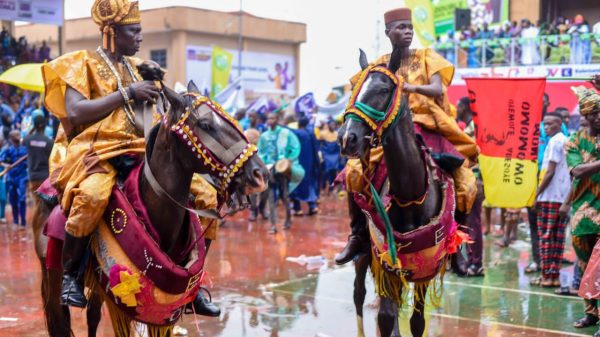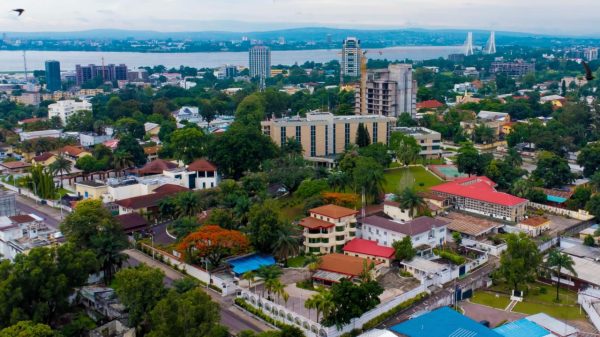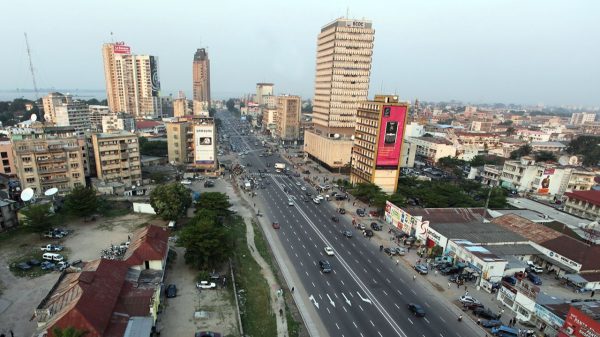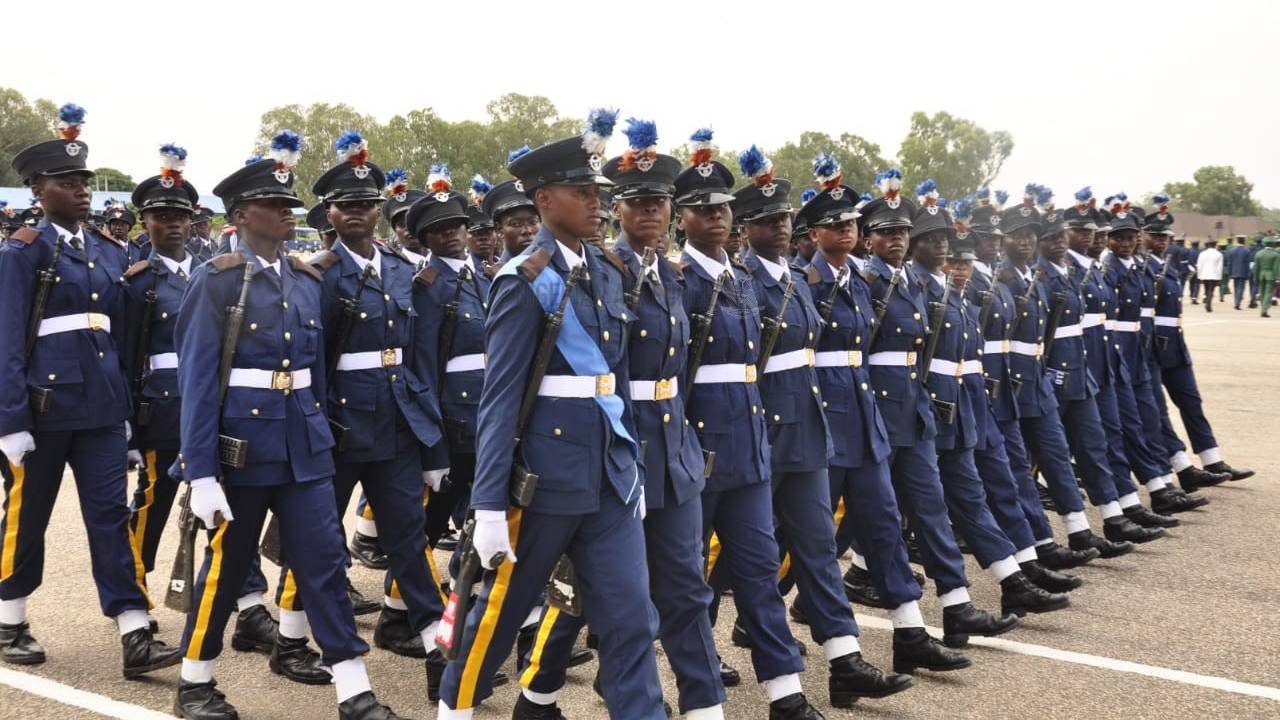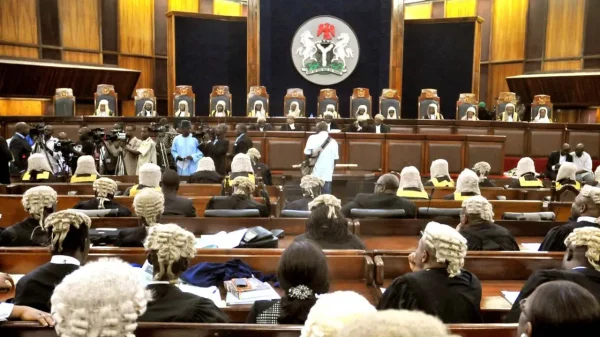The Nigerian Air Force (NAF), established on April 18, 1964, serves as the aerial warfare branch of the Nigerian Armed Forces.
With a fleet of approximately 147 aircraft and a dedicated active personnel of around 18,000, the NAF plays a crucial role in maintaining the integrity of Nigeria’s airspace and fulfilling other airpower demands for national defense and security. Its operational history includes participation in significant engagements such as the Nigerian Civil War, peacekeeping operations in Liberia and Sierra Leone, and ongoing efforts against the Boko Haram insurgency.
Understanding the organizational framework of the NAF, particularly its rank structure and associated compensation, is vital for individuals considering a career in the force, current personnel seeking advancement, researchers studying military organizations, and the public interested in the composition of Nigeria’s defense apparatus. This report aims to provide a comprehensive overview of the ranks within the Nigerian Air Force and their corresponding salaries, drawing upon available information to offer a detailed and authoritative account.
1. Nigerian Air Force Rank Structure
Overview of Rank Categories
The hierarchical structure of the Nigerian Air Force is broadly divided into two principal categories: Commissioned Officers and Non-Commissioned Officers (NCOs), also known as Enlisted Personnel or Airmen/Airwomen. This fundamental division is characteristic of military organizations worldwide, reflecting distinct roles and responsibilities within the force. Commissioned officers typically hold leadership positions, making strategic decisions and managing resources, while Non-Commissioned Officers and enlisted personnel are primarily responsible for executing operational duties, maintaining discipline, and carrying out the orders of commissioned officers. This structure ensures a clear chain of command and efficient operation of the Air Force.
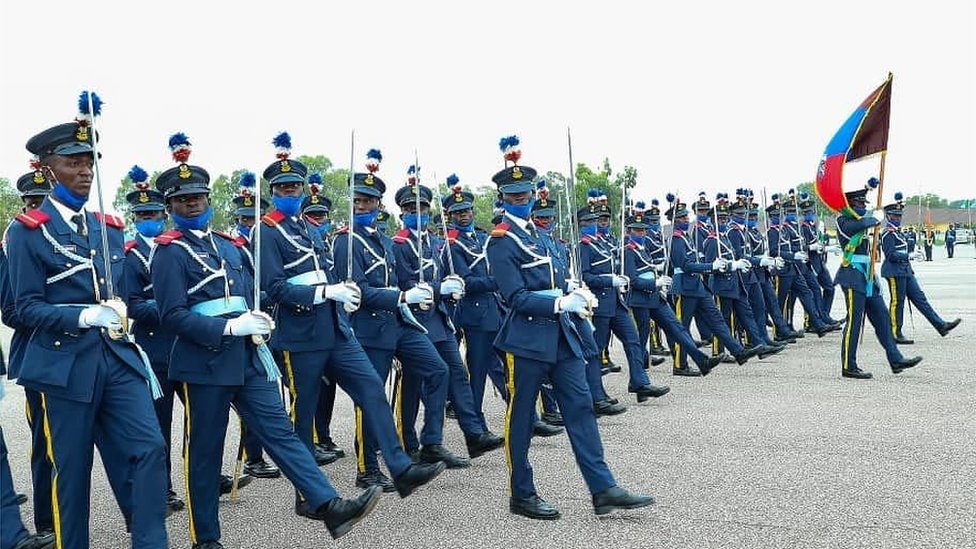
Commissioned Officer Ranks
Commissioned officers in the Nigerian Air Force are typically graduates who have undergone extensive military training, often through institutions like the Nigerian Defence Academy (NDA) or via Direct Short Service Commission (DSSC). These officers progress through a defined hierarchy of ranks, each with increasing levels of responsibility and authority. The commissioned officer ranks in the NAF, presented in ascending order, are as follows:
- Pilot Officer: This is the foundational commissioned rank in the Nigerian Air Force, equivalent to a Second-Lieutenant in the Nigerian Army. Individuals commissioned through the Regular Combatant program from the Nigerian Defence Academy typically begin their careers at this rank. This rank marks the initial entry point into the officer cadre after the completion of basic military training.
- Flying Officer: The next rank in the hierarchy is Flying Officer, which is comparable to a Lieutenant in the Nigerian Army. Graduates of the Direct Short Service Commission (DSSC) are usually commissioned into this rank after completing their specialized training. Flying Officers often take on more specific operational duties and begin to lead small teams.
- Flight Lieutenant: This rank is equivalent to a Captain in the Nigerian Army. Flight Lieutenants typically have increased responsibilities within a squadron, often serving as second-in-command and reporting to the Squadron Leader. Their duties involve overseeing specific tasks and ensuring the readiness of personnel under their charge.
- Squadron Leader: Holding a rank equivalent to a Major in the Nigerian Army, Squadron Leaders command individual squadrons within the Air Force. They are responsible for a broader range of activities, including pilot performance and aircraft maintenance, and report directly to the Wing Commander.
- Wing Commander: This is a senior commissioned rank in the NAF, equivalent to a Lieutenant Colonel in the Nigerian Army. Wing Commanders oversee the activities of personnel directly under their command and often manage wings or squadrons within an air group. Their role involves significant responsibility for day-to-day operations and personnel training.
- Group Captain: Another senior commissioned rank, the Group Captain is equivalent to a Colonel in the Nigerian Army. Officers at this level manage air groups, which are substantial units comprising aircraft and personnel. They are tasked with tactical planning and the execution of missions, reporting to the Air Commodore.
- Air Commodore: This rank marks the entry into the general officer ranks and is the most junior general in the Air Force, holding a one-star rank. Equivalent to a Brigadier-General in the Army and a Commodore in the Navy, Air Commodores command air bases, large operational units, or specialized wings, ensuring their units are mission-ready. They control the activities of officers below them and report to the Air Vice-Marshal.
- Air Vice-Marshal: A two-star general officer, the Air Vice-Marshal is equivalent to a Major-General in the Army and a Rear Admiral in the Navy. Officers in this rank are responsible for major divisions or directorates within the Air Force, such as logistics, administration, or operations. Several Air Vice Marshals hold key leadership positions as Branch Chiefs and Air Officers Commanding various commands within the NAF.
- Air Marshal: This is a very senior rank, equivalent to a Lieutenant General in the Army and a Vice Admiral in the Navy. Air Marshals work closely with Air Vice-Marshals in controlling and organizing the activities of junior officers and are deeply involved in the day-to-day planning and running of the Force. They report directly to the Air Chief Marshal on critical matters concerning air defense. The current Chief of the Air Staff holds the rank of Air Marshal.
- Air Chief Marshal: The highest active rank in the Nigerian Air Force, the Air Chief Marshal is also referred to as “Chief Air Marshal” or “Chief of the Air Staff”. This officer serves as the principal advisor to the President of the Federal Republic of Nigeria on all air-related defense matters and is equivalent to a General in the Army and an Admiral of the Fleet in the Navy. The Air Chief Marshal is responsible for establishing mission objectives, formulating policies, and ensuring the execution of plans to maintain peace and order.
- Marshal of the Air Force: This is the highest rank in the Nigerian Air Force, although it is rarely awarded. Typically, this rank is held by the Commander-in-Chief of the Nigerian Armed Forces, who is the elected President of the country. It signifies the zenith of a military career and is often considered a ceremonial rank awarded in wartime or under exceptional circumstances.
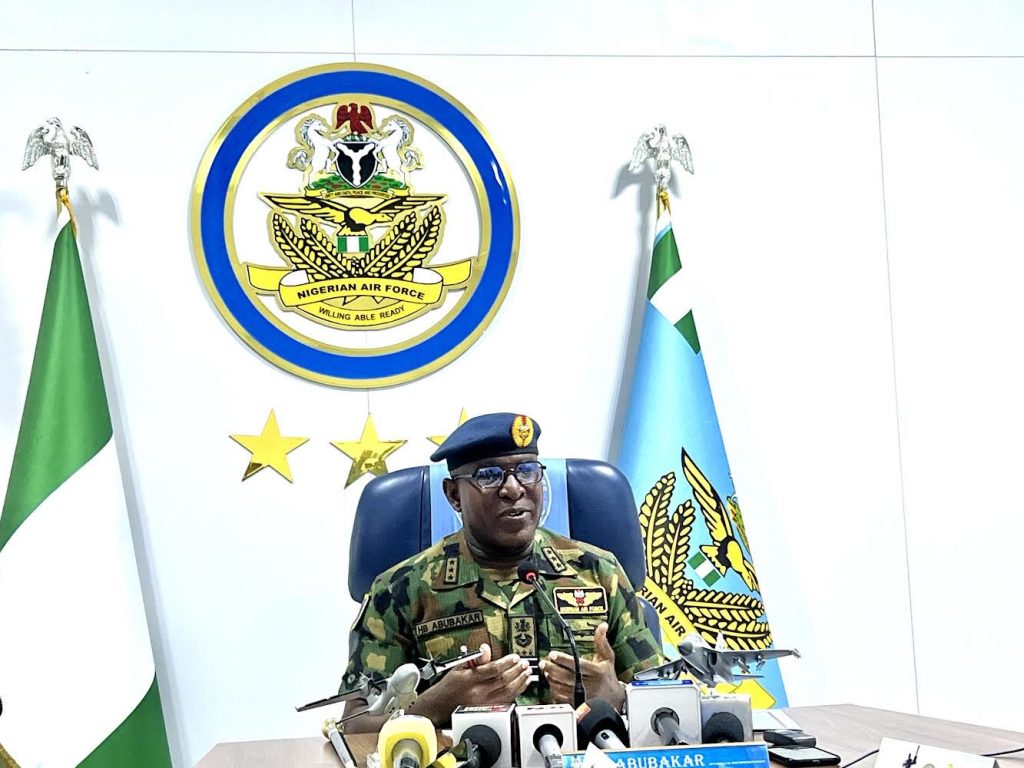
Non-Commissioned Officer (NCO) / Enlisted Ranks
Non-Commissioned Officers (NCOs) and enlisted personnel, often referred to as Airmen/Airwomen, form the backbone of the Nigerian Air Force, executing the operational tasks and maintaining the discipline of the force. These individuals typically enlist through a direct recruitment process and often possess O-Level degrees or lower diplomas. They undergo a period of basic military training before being deployed to various roles, including aircraft maintenance, weapon handling, base defense, and more. The NCO/Enlisted ranks in the NAF, presented in ascending order, are as follows:
- Trainee/Recruit: This is the entry-level rank for individuals who have just joined the Nigerian Air Force and are undergoing basic military training.
- Aircraftman/woman: Upon successful completion of basic training, recruits are typically promoted to the rank of Aircraftman or Aircraftwoman. This is the second to the lowest position in the NAF.
- Lance Corporal: This is a junior Non-Commissioned Officer rank, equivalent to a seaman in the Nigerian Navy. Lance Corporals hold basic leadership roles among airmen and assist Corporals in their duties.
- Corporal: Equivalent to the able seaman in the Nigerian Navy, a Corporal is a Non-Commissioned Officer who acts as a junior supervisor, responsible for a small group of airmen and reporting directly to a Sergeant. This rank is also sometimes referred to as Bombardier.
- Sergeant: These Non-Commissioned Officers manage day-to-day tasks, supervise lower-ranked personnel, and ensure the smooth execution of missions. A Sergeant in the NAF is equivalent to a Leading Seaman in the Navy and a Sergeant in the Army.
- Flight Sergeant: A senior Non-Commissioned Officer, the Flight Sergeant is equivalent to a Petty Officer in the Nigerian Navy and a Staff Sergeant in the Army. They lead smaller teams or sections within a squadron and are tasked with the direct supervision of personnel and equipment.
- Warrant Officer: This rank is a senior Non-Commissioned Officer, equivalent to a Warrant Officer in both the Nigerian Army and Navy. Warrant Officers are designated officers by a warrant, often based on their seniority and experience.
- Master Warrant Officer: Another senior Non-Commissioned Officer, the Master Warrant Officer assists the Air Warrant Officer and oversees the training and welfare of personnel within a specific unit or squadron. This rank is equivalent to a Master Warrant Officer in the Army and Navy.
- Air Warrant Officer: This is the highest Non-Commissioned rank in the Nigerian Air Force, equivalent to a Navy Warrant Officer and an Army Warrant Officer. Air Warrant Officers serve as senior advisors to commanding officers on matters of discipline, morale, and training.
2. Nigerian Air Force Salaries
Consolidated Armed Forces Salary Structure (CONAFSS)
The salaries of personnel in the Nigerian Air Force, along with those in the Army and Navy, are determined by the Consolidated Armed Forces Salary Structure (CONAFSS).This unified salary structure was commissioned in 2017 and ensures a standardized approach to compensating military personnel based on their rank and qualifications. The CONAFSS outlines the basic monthly and annual salaries for all ranks across the Nigerian Armed Forces, although it does not typically include various allowances that personnel may be entitled to based on special assignments, military operations, foreign missions, duty tours, and estacode. The National Salaries, Incomes and Wages Commission (NSIWC) is responsible for the implementation and review of such salary structures within the Nigerian public service, including the armed forces. While the CONAFSS aims for uniformity, slight variations in reported salary figures may arise from the date of the data, the inclusion or exclusion of certain allowances, or minor differences in reporting practices across various sources.
Nigerian Air Force Ranks and Monthly Salaries Table
The following table provides a consolidated list of Nigerian Air Force ranks and their corresponding monthly salaries in Nigerian Naira, based on information gathered from various sources. It is important to note that these figures represent base salaries and may not include additional allowances or benefits. Where discrepancies exist across sources, the table attempts to provide a representative figure or a range if clearly defined.
| Rank Category | Rank Name | Monthly Salary (₦) |
| Commissioned Officers | Pilot Officer | 187,159 – 218,400 |
| Flying Officer | 218,400 – 232,484 | |
| Flight Lieutenant | 232,484 – 248,004 | |
| Squadron Leader | 248,004 – 324,586 | |
| Wing Commander | 324,586 – 352,631 | |
| Group Captain | 352,631 – 677,895 | |
| Air Commodore | 677,895 – 1,376,343 | |
| Air Vice-Marshal | 1,376,343 – 1,486,451 | |
| Air Marshal | 1,486,451 – 1,724,283 | |
| Air Chief Marshal | 1,724,283 | |
| Marshal of the Air Force | Not Specified | |
| Non-Commissioned Officers | Trainee/Recruit | 10,237 – 44,564 |
| Aircraftman/woman | 49,412 – 53,892 | |
| Lance Corporal | 50,326 – 55,832 | |
| Corporal | 51,980 – 58,634 | |
| Sergeant | 56,443 – 69,261 | |
| Flight Sergeant | 69,647 – 87,119 | |
| Warrant Officer | 85,193 – 101,974 | |
| Master Warrant Officer | 148,583 – 165,697 | |
| Air Warrant Officer | 159,059 – 171,793 |
This table provides a general overview of the monthly salaries associated with different ranks in the Nigerian Air Force. It is evident that there is a significant increase in compensation as personnel progress through the ranks, reflecting the increased responsibilities and experience associated with higher positions.
Analysis of Salary Variations
The variations in salary figures presented in the table can be attributed to several factors. Firstly, the data originates from different sources published at various times. Economic conditions and government policies can lead to revisions in the Consolidated Armed Forces Salary Structure (CONAFSS) over time. For instance, a review of CONAFSS was approved in 2010 , and the structure itself was commissioned in 2017. Furthermore, some reported figures might represent the base salary, while others could potentially include certain allowances, although this is not always explicitly stated. A report from 2016 indicated the annual salary for an Air Chief Marshal to be N20.69 million, which translates to approximately N1.72 million monthly , aligning with the higher end of the range presented in the table. Similarly, the annual salary for a recruit was reported as N122,848, equating to roughly N10,237 monthly, which matches the lower end of the range for Trainee/Recruit. These discrepancies highlight the dynamic nature of salary structures and the importance of considering the source and publication date of any salary information.
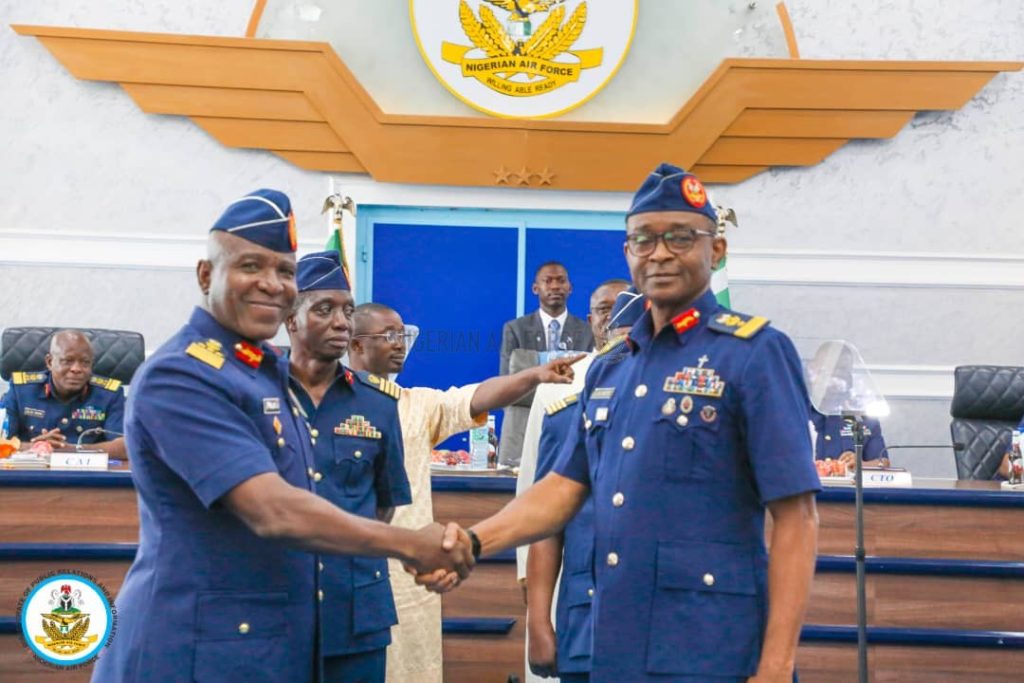
3. Rank Equivalencies
Understanding the equivalencies between ranks in the Nigerian Air Force and other branches of the Nigerian Armed Forces, namely the Nigerian Army and the Nigerian Navy, can provide a broader perspective on the military hierarchy. The table below illustrates these equivalencies for the various ranks:
| Nigerian Air Force Rank | Nigerian Army Equivalent | Nigerian Navy Equivalent |
| Marshal of the Air Force rshal | Major General | Rear Admiral |
| Air Commodore | Brigadier-General | Commodore |
| Group Captain | Colonel | Captain |
| Wing Commander | Lieutenant Colonel | Commander |
| Squadron Leader | Major | Lieutenant Commander |
| Flight Lieutenant | Captain | Lieutenant |
| Flying Officer | Lieutenant | Sub-Lieutenant |
| Pilot Officer | Second Lieutenant | Midshipman |
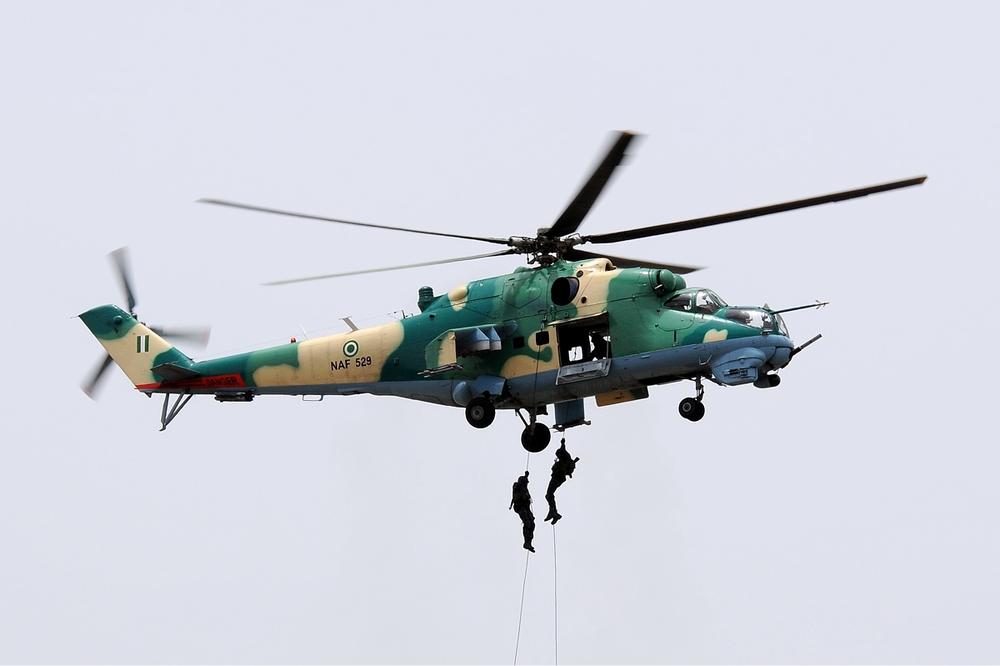
| Air Warrant Officer | Army Warrant Officer | Navy Warrant Officer |
| Master Warrant Officer | Master Warrant Officer | Master Warrant Officer |
| Warrant Officer | Warrant Officer | Warrant Officer |
| Flight Sergeant | Staff Sergeant | Petty Officer |
| Sergeant | Sergeant | Leading Seaman |
| Corporal | Corporal | Able Seaman |
| Lance Corporal | Lance Corporal | Seaman |
| Aircraftman/woman | Private | Ordinary Seaman |
| Trainee/Recruit | Recruit | Recruit |
This comparison demonstrates the parallel structures across the three branches of the Nigerian Armed Forces, facilitating interoperability and a common understanding of authority and responsibility.
The Nigerian Air Force operates with a well-defined hierarchical structure comprising both Commissioned Officers and Non-Commissioned Officers/Enlisted Personnel. Each rank within these categories carries specific responsibilities and is associated with a corresponding level of compensation as outlined by the Consolidated Armed Forces Salary Structure (CONAFSS). While salary figures may vary slightly across different sources due to factors such as the date of publication and the potential inclusion of allowances, the provided information offers a comprehensive overview of the expected monthly earnings for personnel at various ranks within the NAF. Understanding this structure and the associated compensation is crucial for individuals considering a career in the Nigerian Air Force, as well as for broader analysis of Nigeria’s defense forces. As government policies and economic conditions evolve, periodic reviews of the salary structure may occur, reflecting the dynamic nature of military compensation.
Subscribe to our Newsletter
Stay updated with the latest trends in African Pop Culture!



